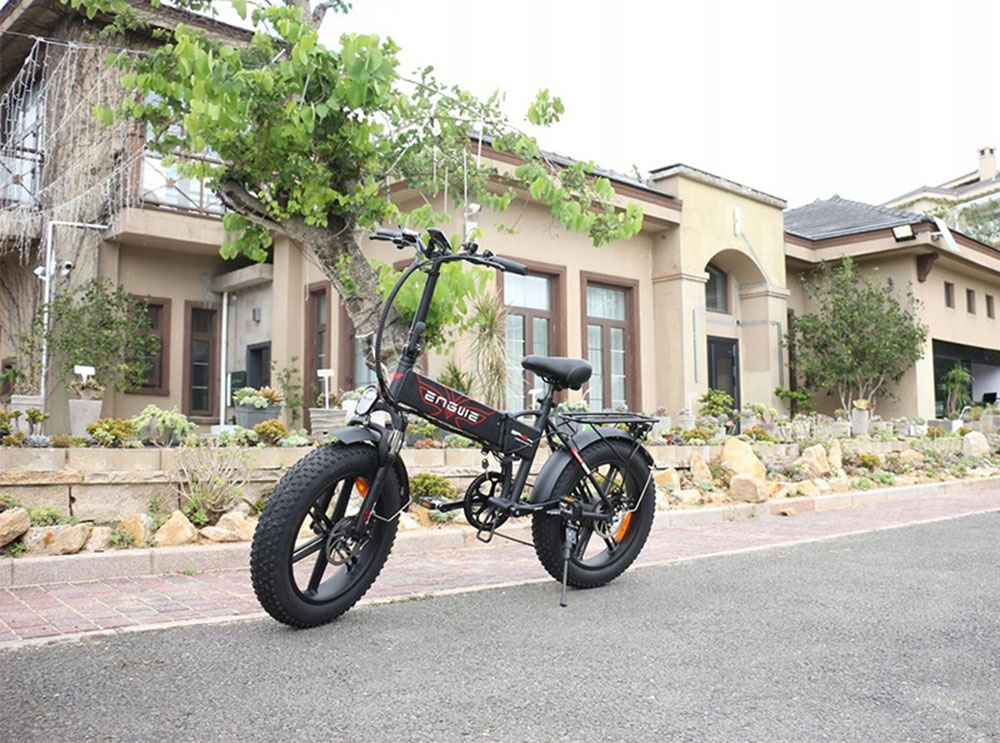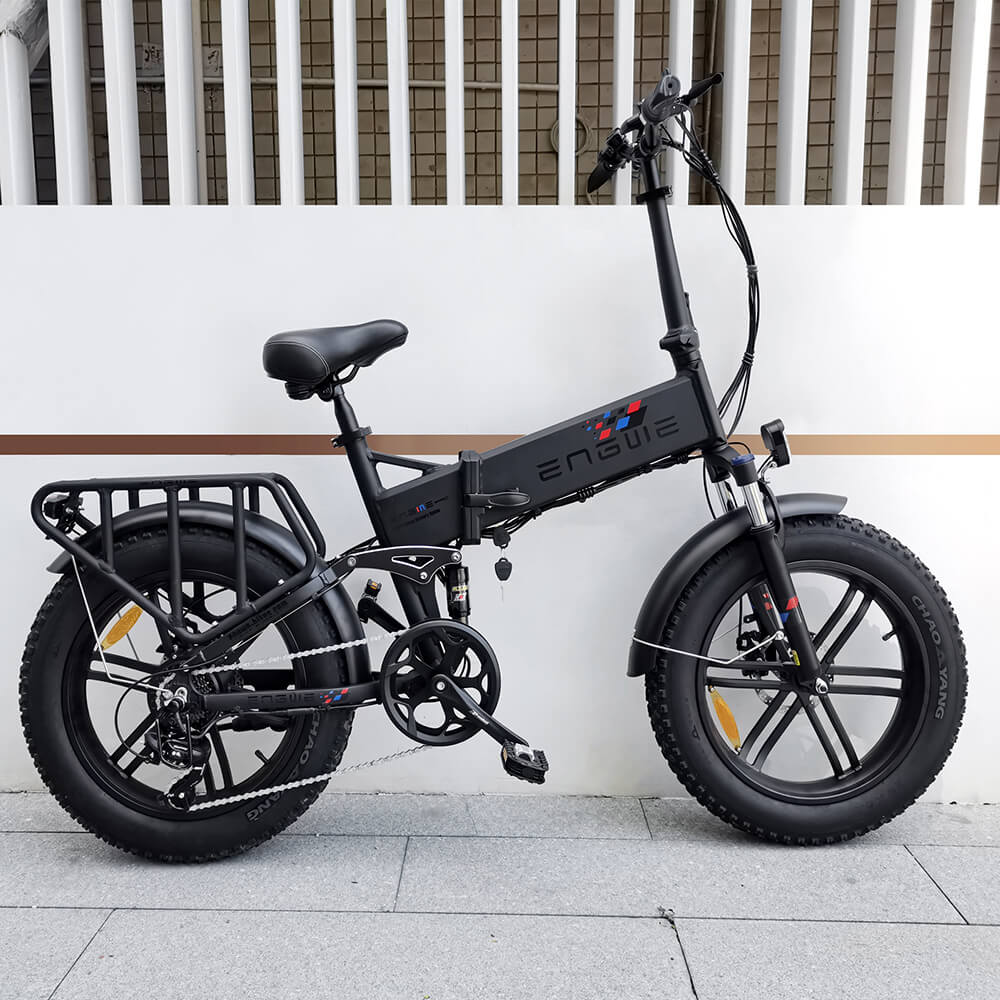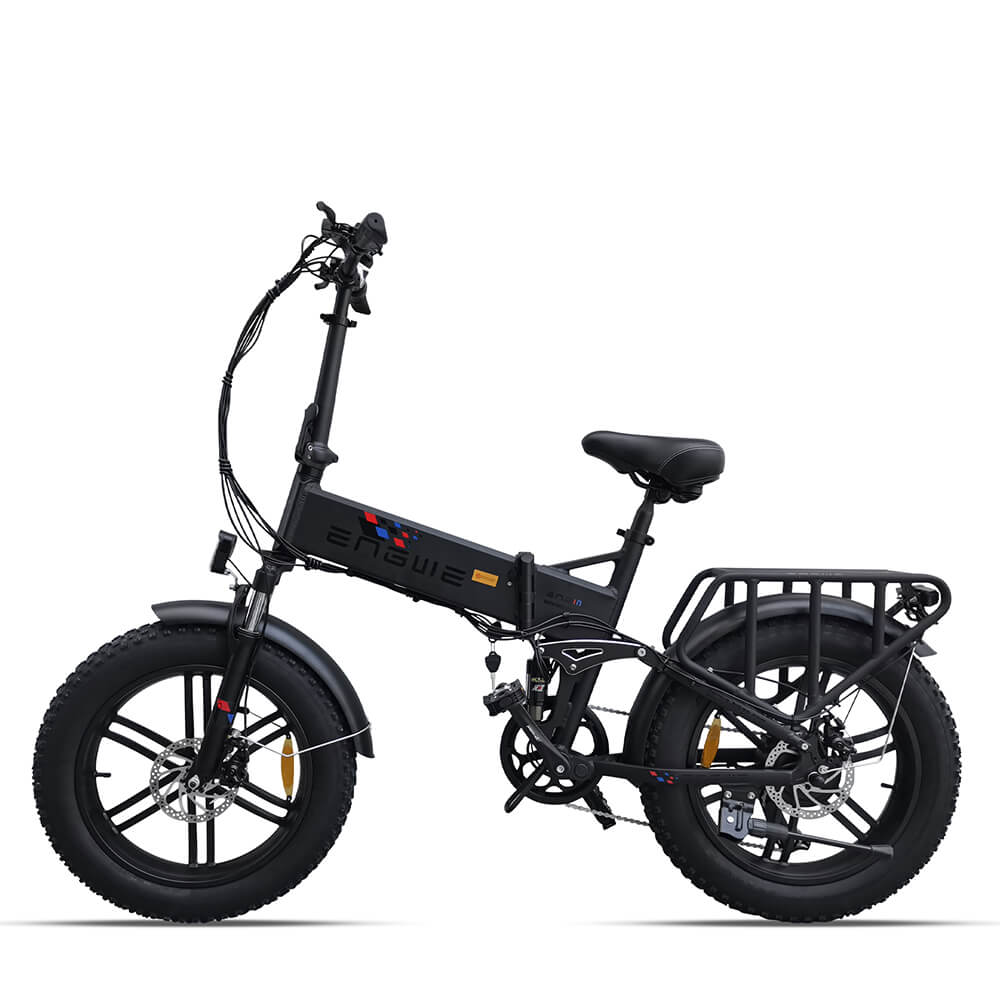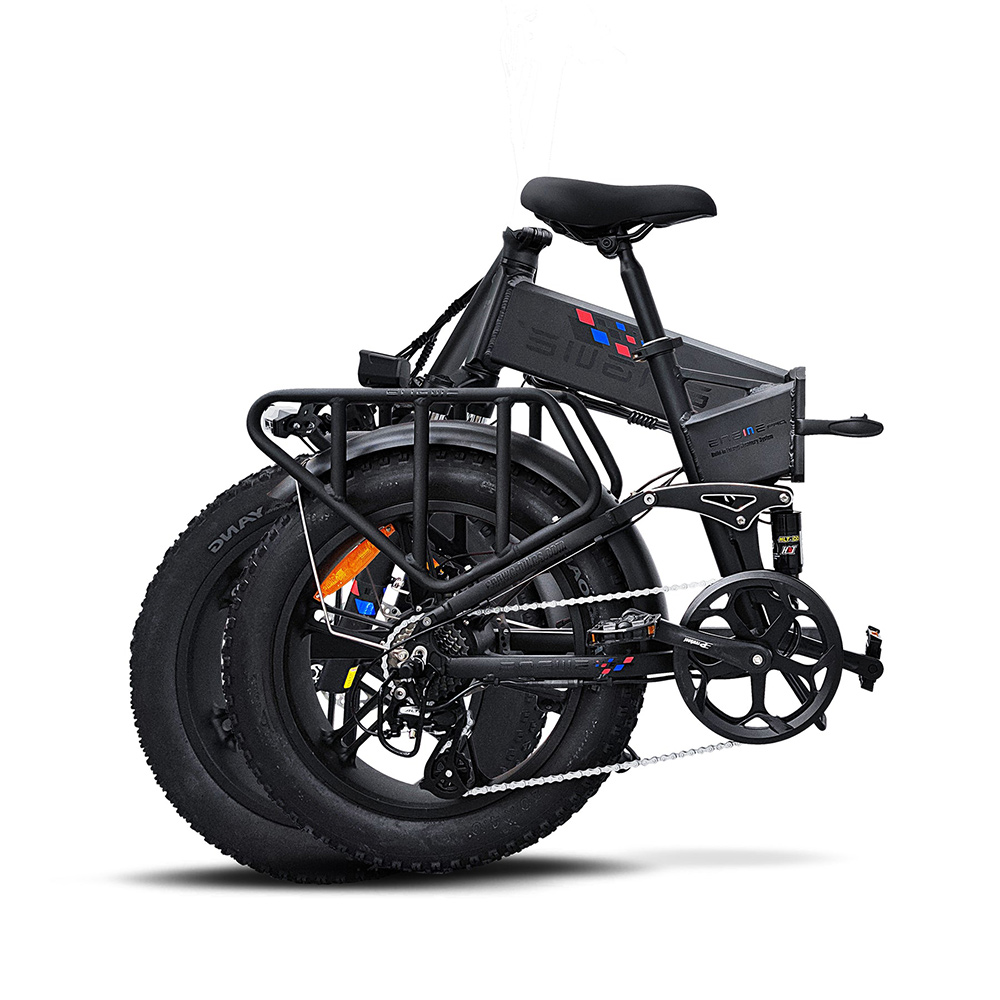How Heavy Is An Electric Bike?

If you are planning to upgrade from a bicycle to an e-bike, you might wonder how heavy is an electric bike… and if that is so, you are at the right place.
In this blog, we will discuss everything there is to know about the weight of an electric bike, including the factors that determine it. We will also discuss if and how the weight of an e-bike impacts your ride.
But before that, let’s see why an electric bike is heavier than a regular bicycle in the first place.
Why is an Electric Bike Heavy?
An electric bike is around 6-12kg heavier than a conventional bicycle. It’s because of the added weight of the motor and the battery that provides pedal assistance to you.
Besides these two main components, you also have a sensor system to detect your pedaling inputs, a controller to regulate the current flowing from the battery to the motor, an LCD system to let you monitor your ride parameters, and a lot of wiring.

Also, since electric bikes operate at a far higher speed than conventional bicycles and are often used to tackle rugged off-road tracks, bike manufacturers use heavier and sturdier components to cope with the challenge.
For instance, the frame of an e-bike has more strength (and material) to endure the strain created by the motor system. The drivetrain is beefed up to work at a significantly high rate. Likewise, the wheels need to be stronger and more durable, and the tires need a thicker tread to remain resilient at cruising speeds.
So, it just makes sense why electric bikes are relatively heavier.
How Heavy is an Electric Bike?
Most electric bikes weigh around 25kg on average. But since there are so many kinds of e-bikes out there, it’s safe to assume that there’s a huge variation in weight. Here’s how much the common types of electric bikes weigh on average.
Racing Electric Bikes
Racing electric bikes are the lightest among all types of electric bikes and may weigh less than even 10kg. The reason is quite obvious – the more weight you can shed from a racing vehicle, the better it will perform on the race track.
Road e-bikes are a bit heavier than racing e-bikes but still lighter than other styles. Like racing electric bikes, they too have a sleek body, a lightweight frame, narrow tires, and only those components which are absolutely needed.
Folding Electric Bikes
Folding electric bikes are rapidly becoming popular among riders living in congested cities.
These e-bikes have lightweight frames made of aluminum alloy that can be folded usually by collapsing the stem, allowing users to store them behind their desks at work or carry them on public transportation.
So, these electric bikes are understandably light in nature and weigh between 15kg and 23kg. However, the ones that have fat tires are heavier.
Mountain Electric Bikes
Mountain electric bikes (eMTBs) have a great variation in weight due to diverse preferences among mountain e-bikers and may weigh anywhere from 15-28kg.
Most users prefer lightweight eMTBs as lighter bikes are faster and can climb hills more easily.
However, heavier bikes perform well on downhills… and the fact is many mountain users aren’t even concerned with great speed. They want an option that’s sturdier and can endure whatever they throw at it.
Commuter Electric Bikes

Commuter electric bikes can be of various styles and there’s no clear-cut division.
In fact, a number of manufacturers don’t make any differentiation between commuter, cruiser, and hybrid electric bikes, as all of these have a lot of similar features.
However, there can be slight differences in styling. For instance, cruiser electric bikes have swept-back handlebars to ensure a relaxed, upright posture. Hybrid e-bikes resemble eMTBs a lot, and commuter e-bikes can look just like road e-bikes.
These electric bikes usually have a weight from 20kg to 30kg
Fat Tire Electric Bikes
Fat tire electric bikes feature tires with a width ranging from 3” to 5”, though 4” is the most commonly used profile. These tires are specifically built for off-roading and have anti-slip knobby tread, a wear-resistant build, and often have an anti-puncture liner as well.
Not only do these tires weigh more (for obvious reasons), they have an indirect impact on the weight of the bike as manufacturers have to use sturdy frames and better-grade components (such as high-strength spokes, capable disc brakes, enduring forks) to sync with the kind of performance the fat tires are used for.
As a result, the weight of a fat tire electric bike is on the heavier side, usually from 25-32kg. In fact, more weight is preferable for off-roading bikes as it translates to better traction and stability.

Cargo Electric Bikes
Cargo electric bikes can let you carry a stunning payload and are becoming widely popular in Europe. In fact, many European families are replacing their cars with these bikes, thanks to their incredible utility.
Cargo electric bikes are of various styles. They can either have a cargo space at the rear or may have a large cargo box in front of the rider. The cargo electric bikes with rear carrying space are further classified as long and short tail bikes. They also have a front deck for additional carrying space.
Understandably, these electric bikes are the heaviest of all and weigh up to 40kg.
Factors Affecting the Weight of an E-Bike
The exact weight of any type of electric bike depends on a number of factors, the most significant of which are as follows:
Frame Material
Frame material is unarguably the biggest determinant of the weight of an e-bike. Steel frames are the heaviest, while carbon fiber frames are the lightest. The carbon frames, however, are not only expensive but also fragile. Aluminum, on the other hand, is just perfect in every aspect. It’s lightweight and high-strength and costs less than carbon fiber.
Type of Motor
The motor usually weighs around 3-4kg, though there are a lot of exceptions on either side. Hub motors are more compact and lightweight than mid-drive motors as they have to operate inside the hub of your wheels. Within hub motors, geared hub motors weigh less than direct drive (gearless) motors as they can use their internal gear ratio to amplify the power output.
Battery Capacity
It’s a no-brainer. The more capacity your battery has, the heavier it will be. Battery capacity, measured in ‘Ah’ varies a lot from bike to bike. While entry-level electric bikes can have units as small as 5Ah, the high-end options especially those meant for longer rides can have a battery capacity of up to 30Ah. The e-bikes that use dual batteries also weigh more.
Type of Components
Likewise, the weight of an electric bike is heavily impacted by the type of components and the number of accessories. For instance, the type of brake (rim vs disc), the type of suspension (spring vs hydraulic, or front vs dual), the type of drivetrain (belt vs chain, or single vs multi-speed), everything has an impact on how much your bike will eventually weigh.
Does E-Bike Weight Affect Your Ride?
When it comes to riding handling, the weight of an electric bike has little impact when you’re riding on flat roads. But climbing hills or ascents with a heavier e-bike can be more tiresome – especially when you don’t have a powerful motor to provide you with an adequate level of assistance.
However, as I mentioned above, in the case of fat-tire electric bikes meant for off-roading, you need to have an adequate weight to get better traction and ensure ride stability.
The weight of the bike may not have a huge impact on ride handling, but it significantly affects your range. The less your bike (and you) weigh, the more distance you will be able to cover on a single charge.
Lighter bikes are somewhat easy to maneuver as well. Also, a lightweight bike is easy to lift and move around… so if you often need to carry your ride up a flight of stairs or on a metro, you’ll be better off with a lighter option.

How Heavy is an Engwe Electric Bike?
At Engwe, we have got electric bikes for every kind of rider.
If you’re looking for a capable off-roader that’s not too light of losing traction on rugged tracks, check out our top-of-the-line Engine Pro. It weighs 31kg and has a monstrous 750W powertrain (fueled by a gigantic 48V 16Ah Lithium-ion battery), a sturdy aluminum alloy frame, and capable 4” all-terrain fat tires.
Or if you want a feathery light commuter that you can easily carry up a flight of stairs, check out the C20. It has a sleek aluminum frame with a load capacity of 150kg, an efficient powertrain, plenty of cool features… and a net weight of just 22kg!
If you’re interested, you can explore our lineup here. We hope it was an informative read!




